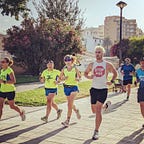Thoughts About Charitable Giving
You obviously want your donations to count. With so many of our communities being affected by natural disasters, social upheaval, and the widespread effects of the coronavirus pandemic, it is more important than ever to stay informed about the causes that are important to you.
Today, nonprofits across the country are racing to meet their quarterly fundraising goals. These goals are deliberately set to meet the needs of the organization and secure their ability to provide important services to their respective causes. More likely than not, you see their appeals in your inbox or the mail.
All the same, most people don’t put too much thought into where their money goes. Statistically, two-thirds of people who give will do no research before deciding which charities to give to, how much to give, and how that money is used.
These organizations rely on your generosity to keep their doors open to the causes they serve, so it is important to know which organizations best address the issues that are most important to you. I highly recommend looking for impact statements on an organization’s website. That is easily the most effective way to see where your money is going and how it affects the community an organization serves.
If you struggle to decide where to direct your charitable gifts, you are not alone. We could spend all day debating the merits of the thousands of worthy organizations racing to meet their annual fundraising goals, but the truth is it depends on you. So take your time; do your homework; and make sure your generous donations are being spent wisely and effectively.
I’ve listed some of my favorites below. If their missions and values align with yours, I urge you to consider donating to them or organizations like them. But wherever you decide to give, I implore you: Please give. Make 2021 the year of the “other.”
- The Jed Foundation: JED provides mental health and suicide prevention resources for teens and young adults. They partner with colleges and universities around the country to promote mental health and provide important resources for vulnerable students.
- The Wikimedia Foundation: My guess is you have used Wikipedia in the last week or so. Your gift to the Wikimedia Foundation supports the infrastructure that allows for the free sharing of knowledge around the world. By giving to Wikimedia, you’re directly supporting free education for everyone.
- The Gary Sinise Foundation: Few celebrities do more for America’s veterans than Gary Sinise. While the Gary Sinise Foundation provides several important services for servicemembers, first responders, and their families, it is best known for its R.I.S.E (Restoring Independence Supporting Empowerment) program, which builds mortgage-free smart homes for the nation’s most severely wounded veterans. Each new or modified home is customized to meet the unique needs of the individual servicemember.
- Lewa Conservancy: Lewa is a Kenyan wildlife sanctuary that houses and protects vulnerable species like the critically endangered black rhino. It also shelters elephants, lions, giraffes, and other iconic wildlife species that are under constant siege from poachers and the effects of climate change. Lewa also provides educational resources for the local community and conducts robust anti-poaching campaigns. Lewa takes a comprehensive approach to protect East Africa’s vulnerable ecosystems.
- Sheldrick Wildlife Trust: The David Sheldrick Wildlife Trust is an elephant orphan rescue located just outside Nairobi. Adopting an elephant or rhino through Sheldrick Wildlife Trust makes an excellent gift, and monthly updates, including photos and a video of your orphan, are shared on a monthly basis.
- Your place of worship: It’s hard to find a place that does more for your community or aligns more closely with your values than your own church, synagogue, mosque, etc.
- St. Luke’s Institute: St. Luke’s provides mental health screenings and resources for Catholic clergymen and -women. They support the development of healthy lives, ministries, and relationships.
- National Geographic Society: Since its founding in 1888, the National Geographic Society has been a leader in identifying and investing in solutions to the world’s most complex problems. Today it remains the premiere community of scientists, educators, and storytellers whose work brings the world and the challenges it faces into every home.
- Fraternal organizations: I recently joined my parish’s chapter of the Knights of Columbus. Like local chapters of other fraternal organizations, the Knights of Columbus work closely within the community to support my most vulnerable neighbors. Additionally, most fraternal organizations offer volunteer opportunities for those who would rather give their time in the service of others. This includes social fraternities and sororities, which always have opportunities to assist in the personal, professional, and educational development of their student members.
